Publications
Articles, publications, books, tools and multimedia features from the U.S. Institute of Peace provide the latest news, analysis, research findings, practitioner guides and reports, all related to the conflict zones and issues that are at the center of the Institute’s work to prevent and reduce violent conflict.
Question And Answer
Blinken’s China Trip Shows Both Sides Want to Stabilize Ties
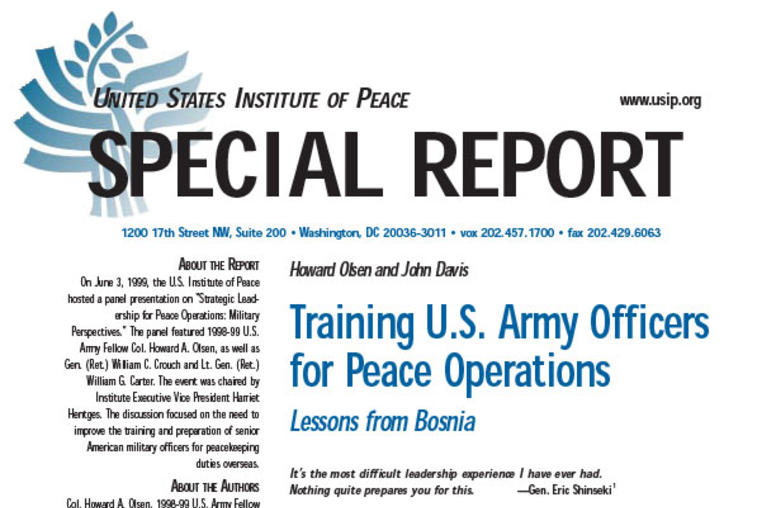
Training U.S. Army Officers for Peace Operations: Lessons from Bosnia
It's the most difficult leadership experience I have ever had. Nothing quite prepares you for this. -- Gen. Eric Shinseki1 Summary National debates fuelled by the recent U.S. military experience in Bosnia produced a series of lessons that range from force protection to civil-military implementation strategies. These lessons can and should inform U.S. military policy toward its present deployment in Kosovo. One of the most important lessons to emerge from the Bosnian experience is ...
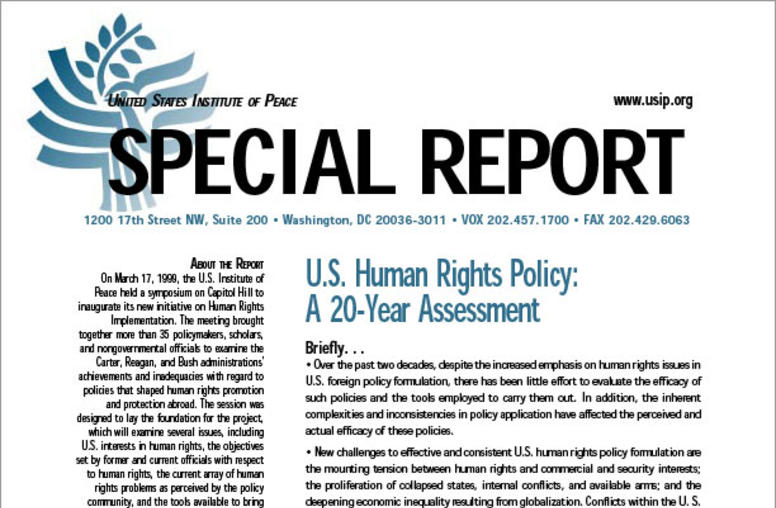
U.S. Human Rights Policy: A 20-Year Assessment
Summary Over the past two decades, despite the increased emphasis on human rights issues in U.S. foreign policy formulation, there has been little effort to evaluate the efficacy of such policies and the tools employed to carry them out. In addition, the inherent complexities and inconsistencies in policy application have affected the perceived and actual efficacy of these policies.
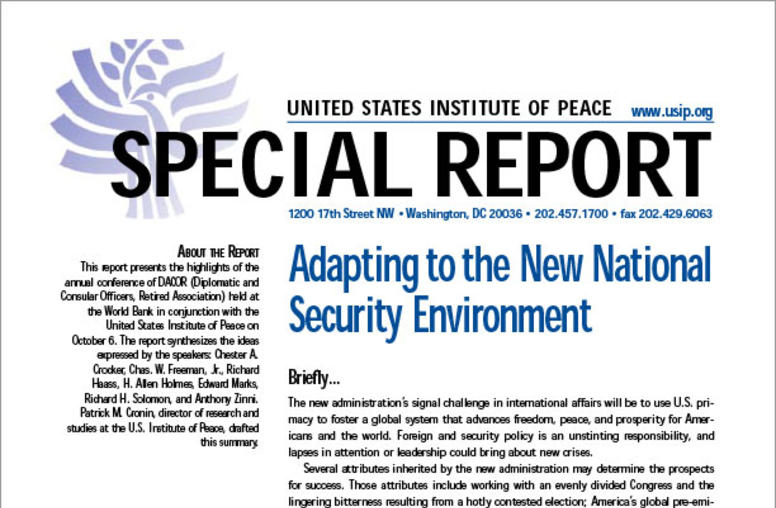
Adapting to the New National Security Environment
Summary The new administration's signal challenge in international affairs will be to use U.S. primacy to foster a global system that advances freedom, peace, and prosperity for Americans and the world. Foreign and security policy is an unstinting responsibility, and lapses in attention or leadership could bring about new crises. Several attributes inherited by the new administration may determine the prospects for success. Those attributes include working with an evenly divided Congres...
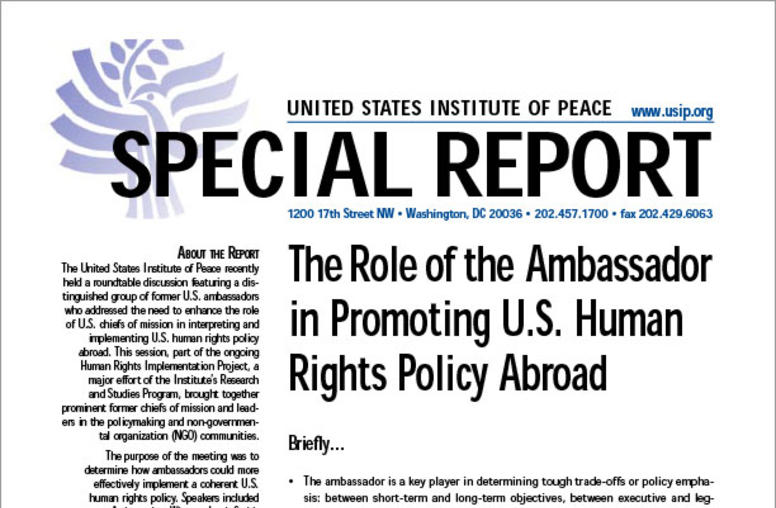
The Role of the Ambassador in Promoting U.S. Human Rights Policy Abroad
Summary The ambassador is a key player in determining tough trade-offs or policy emphasis: between short-term and long-term objectives, between executive and legislative priorities, between strategic interests and specific human rights concerns, between public and private diplomacy, between coercive and cooperative approaches, and between unilateral and multilateral approaches to specific problems.
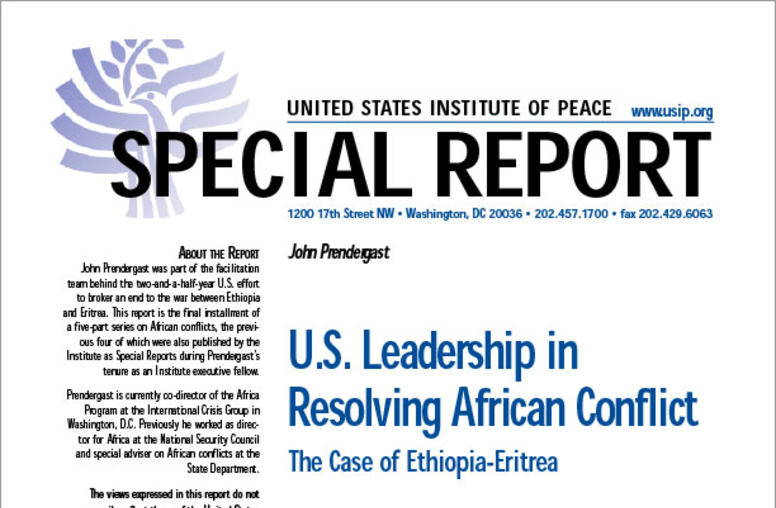
U.S. Leadership in Resolving African Conflict: The Case of Ethiopia-Eritrea
John Prendergast was part of the facilitation team behind the two-and-a-half-year U.S. effort to broker an end to the war between Ethiopia and Eritrea. This report is the final installment of a five-part series on African conflicts, the previous four of which were also published by the Institute as Special Reports during Prendergast's tenure as an Institute executive fellow.
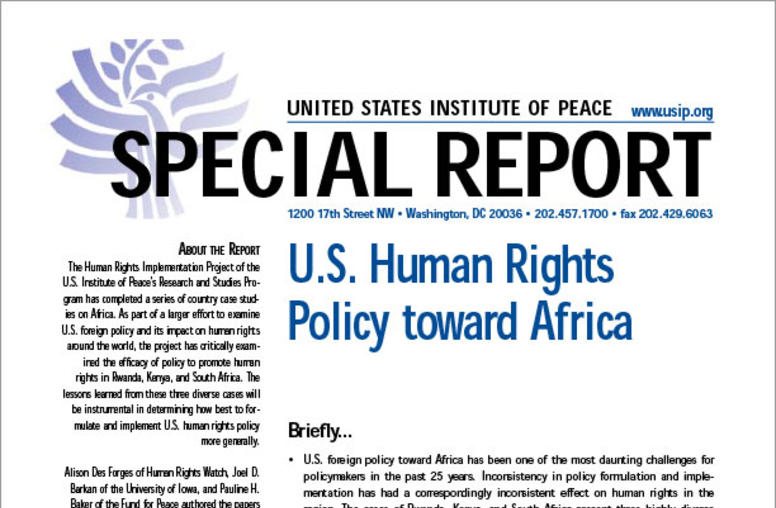
U.S. Human Rights Policy toward Africa
The Human Rights Implementation Project of the U.S. Institute of Peace's Research and Studies Program has completed a series of country case studies on Africa. As part of a larger effort to examine U.S. foreign policy and its impact on human rights around the world, the project has critically examined the efficacy of policy to promote human rights in Rwanda, Kenya, and South Africa. The lessons learned from these three diverse cases will be instrumental in determining how best to formulate an...
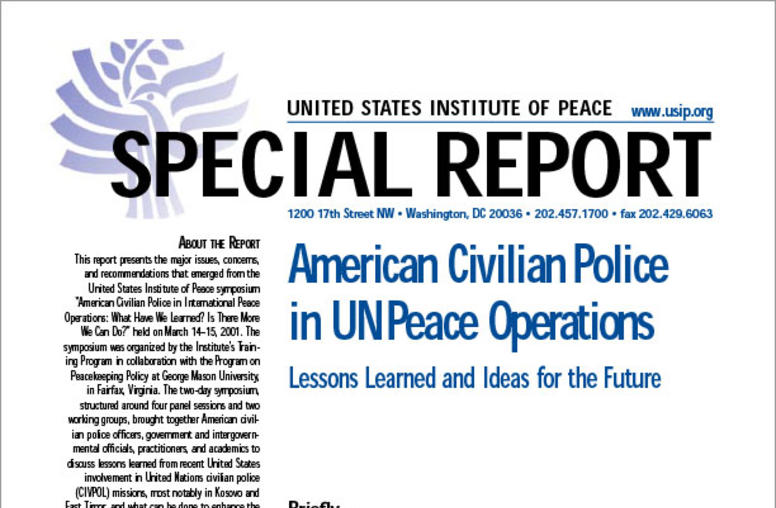
American Civilian Police in UN Peace Operations: Lessons Learned and Ideas for the Future
Summary With the advent of the United Nations missions in Kosovo and East Timor, civilian police (CIVPOL) mandates expanded in scope and scale to assume the full spectrum of executive law enforcement authority, along with the crucial peacebuilding tasks of creating indigenous law enforcement and criminal justice systems based on democratic values and institutions. The Clinton administration's Presidential Decision Directive (PDD) 71 sought to address the "public security gap," creat...
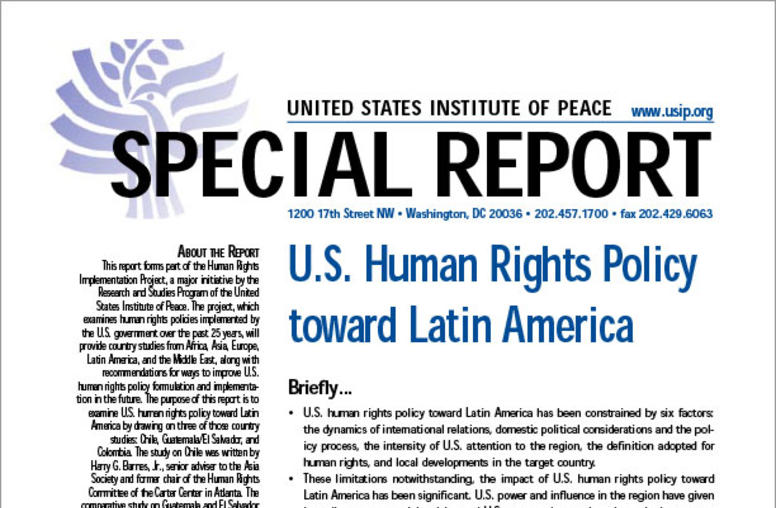
U.S. Human Rights Policy toward Latin America
Summary U.S. human rights policy toward Latin America has been constrained by six factors: the dynamics of international relations, domestic political considerations and the policy process, the intensity of U.S. attention to the region, the definition adopted for human rights, and local developments in the target country.
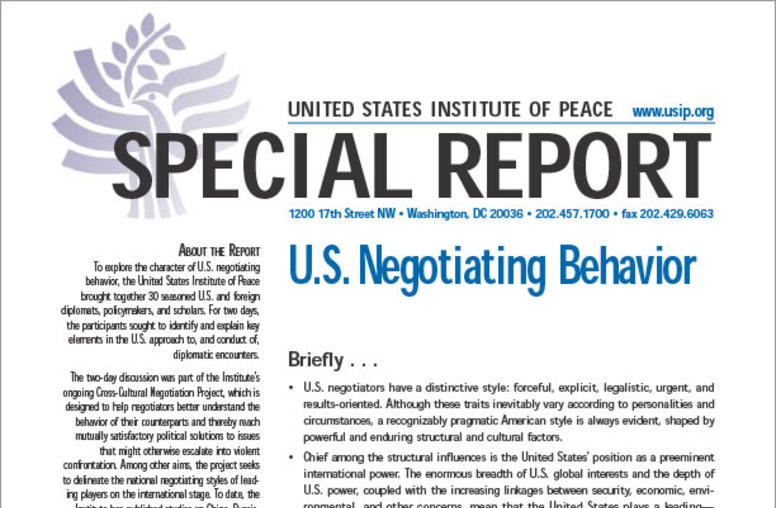
U.S. Negotiating Behavior
Summary U.S. negotiators have a distinctive style: forceful, explicit, legalistic, urgent, and results-oriented. Although these traits inevitably vary according to personalities and circumstances, a recognizably pragmatic American style is always evident, shaped by powerful and enduring structural and cultural factors.
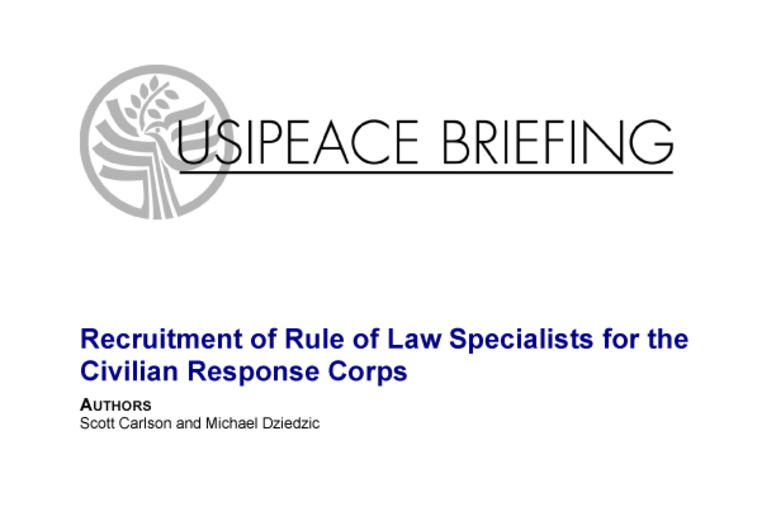
Recruitment of Rule of Law Specialists for the Civilian Response Corps
For more than a decade, experienced international practitioners and peace scholars have recognized that multilateral interventions in societies ravaged by internal conflict cannot succeed unless they come prepared to deal with the inevitable void in public security and inability of the legal system to function effectively. In 1998, two core components of any solution to this crucial deficiency were highlighted in Policing the New World Disorder.